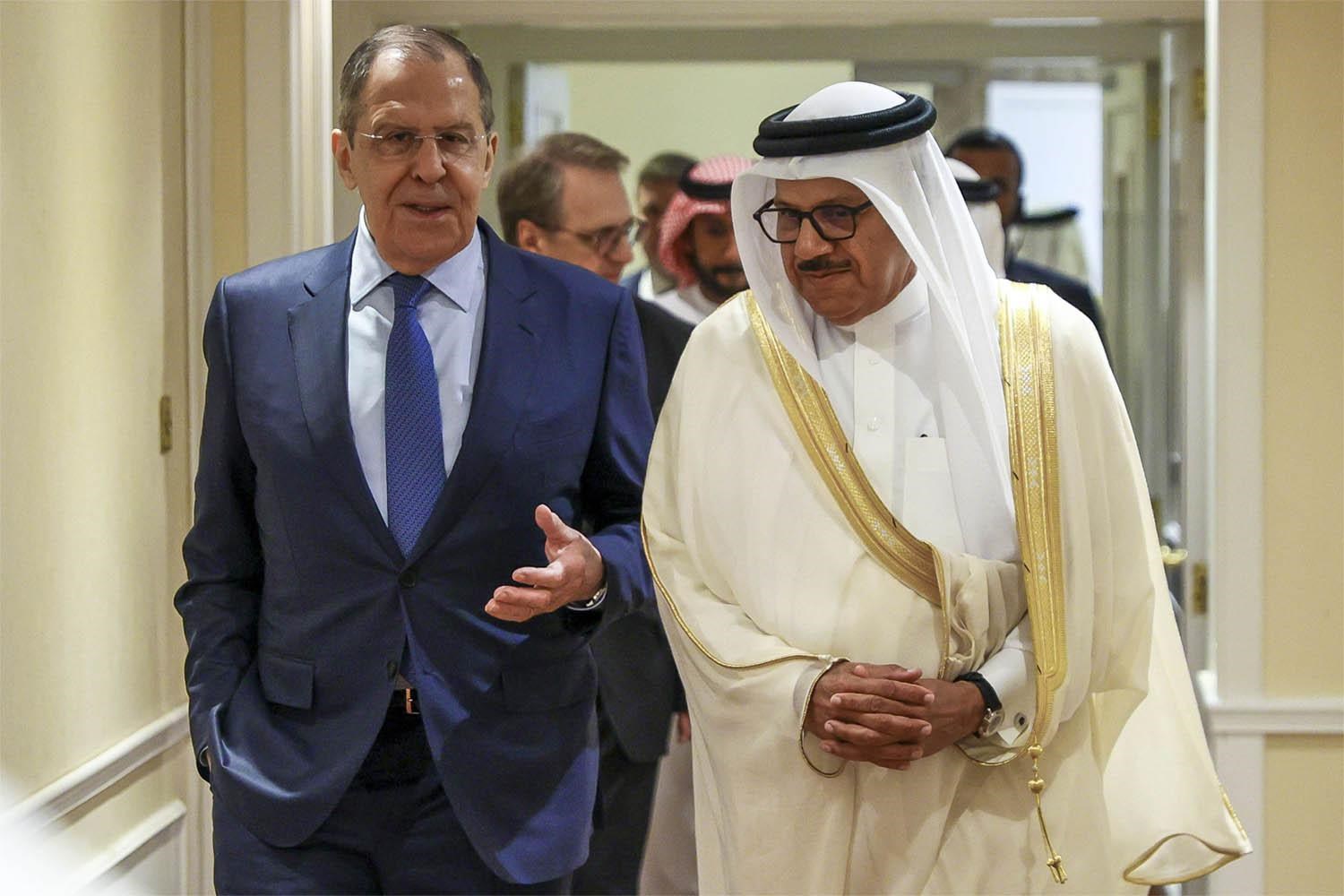Russia actively working on JCPOA revival without amendments: Lavrov
Russian Foreign Minister Sergey Lavrov reveals that his country is working on reviving the Iran nuclear deal without any amendments as the Vienna talks unfold.
-

Russian Foreign Minister Sergey Lavrov and Bahraini Foreign Minister Abdullatif bin Rashid Al Zayani
Moscow is actively engaged in negotiations to revive the Joint Comprehensive Plan of Action (JCPOA), Russian Foreign Minister Sergey Lavrov said Tuesday, revealing that one of its main goals is reviving the deal without any amendments to the 2015 text.
However, he said, there are some obstacles in the talks, "primarily because of the position of the United States, as it is trying to bargain for additional conditions, thus changing the original intent, the original content of the JCPOA, which was approved by the UN Security Council."
Talking at a joint press conference after a meeting with Bahraini Foreign Minister Abdullatif bin Rashid Al Zayani, Lavrov stressed that the JCPOA must be restored without exceptions or additions.
In 2015, the P5+1, Iran, and the European Union signed the multiparty nuclear agreement to provide sanction relief to Iran in exchange for the Islamic Republic reducing its nuclear activities.
The world powers started negotiations in Vienna to revive the nuclear accord and return the United States to it following Washington's unilateral withdrawal in 2018 under then-President Donald Trump, who accompanied his decision with the imposition of harsh sanctions on Tehran.
International Atomic Energy Agency (IAEA) chief Rafael Grossi said last week that the nuclear aspects of the deal with Iran on its atomic research have been "pretty much finalized", though the talks have stumbled on non-nuclear issues. The UN nuclear watchdog also claimed that Iran's stockpiles of enriched uranium were 18 times more than the limit stipulated in the JCPOA.
Grain vessels free passage up to Kiev demining ports
The Russian navy will ensure free passage of vessels carrying Ukrainian grain, which are now blocked in the Black Sea ports, once Kiev agrees to remove its mines from the coastal waters, Lavrov stressed.
Lavrov and his Bahraini counterpart also discussed the situation in Ukraine, including the issue of food security. He said Moscow had been looking for ways to deblock Ukrainian seaports to allow for grain exports since late March, but Kiev is still dismissing requests to demine coastal waters.
"If this demining problem is solved, and we have been attracting the attention of our Western colleagues who have been worried about this for many weeks, then on the high seas, as I said, the Russian navy will ensure the unhindered passage of these vessels into the Mediterranean Sea and on to their destinations," he underlined.
Wheat is the second most-produced grain in the world after corn; now the whole world might face a wheat supply shortage due to the #Ukrainian crisis and the sanctions imposed on #Russia.#Ukraine #RussiaUkraine pic.twitter.com/aNkRuR4cj7
— Al Mayadeen English (@MayadeenEnglish) March 2, 2022
Several countries and international organizations have been calling for the unblocking of the Ukrainian seaports since the start of the war. Grain is stuck in the country's warehouse, and the world is calling for its release with the aim of curtailing the rising food process and delivering crops to regions facing acute food crises as soon as possible.
Russia has been denying the blocking of seaports, and it has highlighted that Ukraine deployed mines in the Black Sea.
This comes as Russia stressed that it would retain its grain export quota mechanism next season, and its exports in 2022 could reach 50 million tonnes.
Russian President Vladimir Putin announced on Thursday that the country's grain harvest in 2022 could exceed 130 million tonnes, and wheat comprises 87 million tonnes of those, which would see Moscow setting a new all-time record.
President Putin told Italian Prime Minister Mario Draghi that Moscow was ready to make a "major contribution" in the course of preventing an impending food crisis if the West lifts its sanctions.
Agriculture Minister Dmitry Patrushev also explained that the current global situation was threatening Russia with emerging challenges, stressing that all states had to make operational decisions with that in mind.

 4 Min Read
4 Min Read










